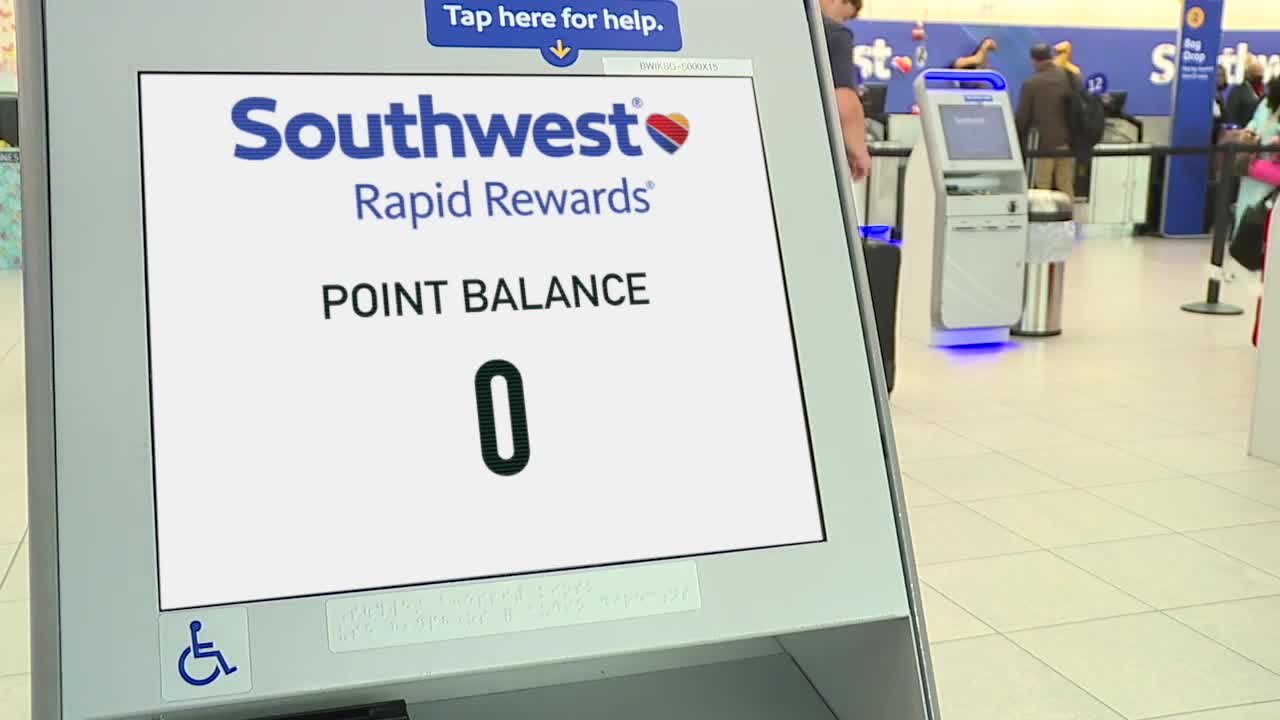BALTIMORE — A Maryland retiree who spent years accumulating Southwest Airlines loyalty points watched as thieves drained more than 500,000 points from her account in a matter of minutes.
"During COVID, for three years we never traveled anywhere, so it was just the accumulation of points from previous travel and credit card reward points," said Denise Freiji.

WATCH: Thieves spent over 500,000 Rapid Rewards points in minutes.
The theft happened quickly. Freiji noticed suspicious activity when she received booking confirmation emails.
"I saw things being booked with hotels, which I never do," she said. "I was able to put pause on that and change my password, and came home to investigate further."
When Freiji investigated, she discovered the scope of the fraud.
"I was going to Greece for a week and Belgium for a month. So these were all international hotels that were booked using my account," she said.
The thieves spent over 500,000 Rapid Rewards points in minutes.
Freiji reported the fraud to Southwest Airlines, who confirmed they were investigating. After persistent follow-up, the airline agreed to restore her points.
"I finally got someone that responded to me to let me know that as a goodwill gesture they would in fact refund these miles since it was not me that used them," Freiji said.
"As a 'goodwill gesture,' so I guess that would imply that they wouldn't typically do that?" asked WMAR-2 News' Mallory Sofastaii.
"Typically, no. They do not do that because they have a clause in their contract that says they are not responsible for lost or stolen points," Freiji replied.
Freiji also discovered Southwest doesn't offer two-factor authentication for online bookings.
"It's only if I call in and want to speak to an agent. But if I do it online, book another travel, there was no two-step," she said.
In a statement to WMAR-2 News, the Southwest PR team wrote:
"Southwest is committed to protecting our Customers’ accounts with comprehensive cyber security controls. We are enhancing our core technology and have implemented a range or proactive and responsive security measures across our platforms, including multi-factor authentication to our More Rewards program to protect Rapid Reward points redemptions.
To protect our security and confidentiality, we don't discuss publicly the tactics of our comprehensive cybersecurity program."
When asked about expanding protection beyond the More Rewards program, where customers can use points for gift cards and merchandise, Southwest's PR team said they had nothing to add beyond their previous statement.
Katy Nastro, spokesperson and travel expert with the Going Travel App, experienced similar theft with American Airlines miles and explained the legal reality.
"People aren't owed these funds necessarily, they're only owed the amount that was taken in the form of cash," Nastro said.
This means even if loyalty points are tied to a credit card, airlines have no legal obligation to replace them when stolen.
Nastro recommends several steps to protect loyalty points:
- Call airlines to ask about available security alerts
- Check points balances frequently
- Don't accumulate points for too long
"We've seen points and miles depreciate and there's no real track of how much they depreciate year after year or every two years or three years or what not, so you want to make sure that you're not sitting on them so you're getting the best value out of them at this current time period. So using them within the year is a good rule of thumb," Nastro said.
Freiji's case isn't isolated to Southwest. Customers in other travel rewards programs have reported losing points and miles to thieves across the industry.
READ MORE: Travel rewards valued at thousands of dollars stolen from member’s account
Freiji doesn't know how someone accessed her account, but she recommends checking email often, updating passwords regularly, and understanding the fine print about what happens if rewards are stolen.
The U.S. Department of Transportation (DOT) does not have rules governing airline frequent flyer programs, but it does have the authority to investigate unfair or deceptive practices in air transportation, including complaints from consumers regarding airlines’ frequent flyer programs. Click here to file a complaint with DOT.
This story was reported on-air by a journalist and has been converted to this platform with the assistance of AI. Our editorial team verifies all reporting on all platforms for fairness and accuracy.




